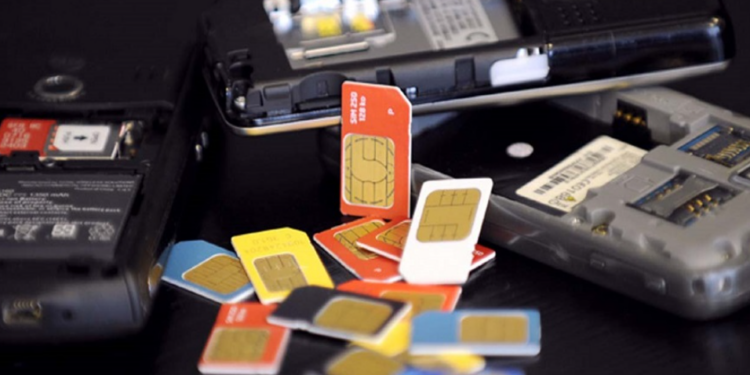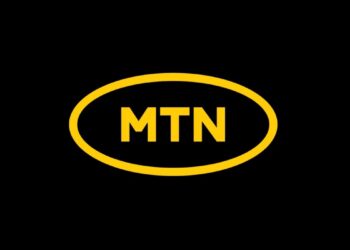Telecommunications operators in Nigeria have begun the implementation of the age restriction for mobile subscribers as stipulated in the recent guidelines for SIM registration released by the Nigerian Communications Commission (NCC).
This has led to the disconnection of some mobile lines registered by persons under the age of 18. Specifically, MTN disclosed in its half-year 2023 that it began the implementation of this restriction in Q2 this year, which led to a plunge in its subscription database.
- “In Q2, we implemented the minimum age requirement for SIM registration from 16 to 18 years, which impacted the run rate of gross connections and active data subscribers in the quarter,” MTN stated.
Two other mobile operators also confirmed to Nairametrics that this is being done in line with the regulatory guidelines for SIM registration.
Mobile subscriptions decline
The disconnections explain why there has been a consistent decline in the country’s mobile subscriptions over the last three months.
Data released by the NCC showed that total active mobile subscriptions across the mobile networks declined by 1 million in April despite new activations. In May, active subscriptions further declined by 2.5 million.
The trend continued in June as the latest data released by the telecom regulator showed a further reduction in connected mobile lines by 1.2 million. This brought the total active mobile subscriptions in the country to 219.7 million at the end of June.
Why NCC introduced the age limit
Explaining why it revised the age of acquiring a SIM upward from 16 to 18, NCC in a statement released when the regulation was first announced in October 2021 said it was aimed at protecting minors in the country.
The Commission said this was also in accordance with the Nigerian constitution, which recognizes 18 as the age at which a Nigerian can enter a contractual relationship.
The Commission further explained that SIM acquisition is a contract between service providers and their subscribers, which requires the subscriber to have proper legal status, be of mature mind, and be rational enough to bear certain responsibilities, obligations, and liabilities imposed by a contract.
- “The regulation is, therefore, to protect minors. Parents and guardians can acquire SIMs in their names on behalf of their children and wards in which case they assume whatever responsibilities or liabilities arise from the usage of such SIMs, a measure expected to also strengthen national security.
- “While the Commission is progressively pursuing digital inclusion for all, the draft proposal is intended to guarantee increased monitoring of children and shield the minors from undue liabilities in line with NCC’s Child Online Protection drive,” the Commission stated.
Telecom operators’ position
At a public inquiry on the regulation, which was a draft then, operators had pleaded with the NCC to reduce the age limit to 15 years to allow minors to acquire SIMs.
Specifically, Smile Communications in its submissions to the regulation said that while it understood the need to set an age limit in respect of procuring communications services, Section 59(3) of the Labour Act approves the eligibility of young persons under the age of 14 years to engage in a contractual relationship.
Smile urged the Commission to consider the provisions of the Labour Act and adopt the same in eligibility for SIM ownership.
The operator recommended that the age limit for procuring communications services should be expanded to permit ages 15 and above.
On its part, MTN also urged the Commission to revise the age limit. MTN asked the commission to make the age limit 14 years and above.
The NCC, however, insisted on 18 years and above for anyone who wants to own and register a SIM in Nigeria.
























The age should be reviewed to 15 years, being the age of many students registering for JAMB as individual’s specialised phone number is one of the vital requirements for JAMB registration. Restricting the age of sim subscribers to 18 years will be denying those that finished secondary school under 18 years the opportunity of furthering their education until they are 19 or even 20. JAMB releases forms once a year (around March each year). So, a child born in April upwards can’t register JAMB when he or she turns 18. Therefore, it means he or she will register at 19 and get admitted almost at 20 when his mates are either graduating or preparing to graduate in other climes.
More reason we are backward technologically, the good surpass the bad.so far anyone can register for NIN why the sim issue?
I am still at a lose as 6o why the information the telecomms company has of its subscribers is still not enough to track fraudulent elements, but to only intimidate people.
Those guys who hack people’s Bank account details and swipe the money are out there enjoying without fear of being tracked.
I am still at a lose as yo why the information the telecomms company has of its subscribers is still not enough to track fraudulent elements, but to only intimidate people.
Those guys who hack people’s Bank account details and swipe the money are out there enjoying without fear of being tracked.
Reply
Very hopeless policy. Most of our children going to the University now is less than 18 and must have a phone. At this stage in their life there already have some level of independence. Putting policies that will make it difficult for them to have sims is not wise. NCC should focus on making data and airtime cheaper than it is now to allow businesses and engagement grow within Nigeria.